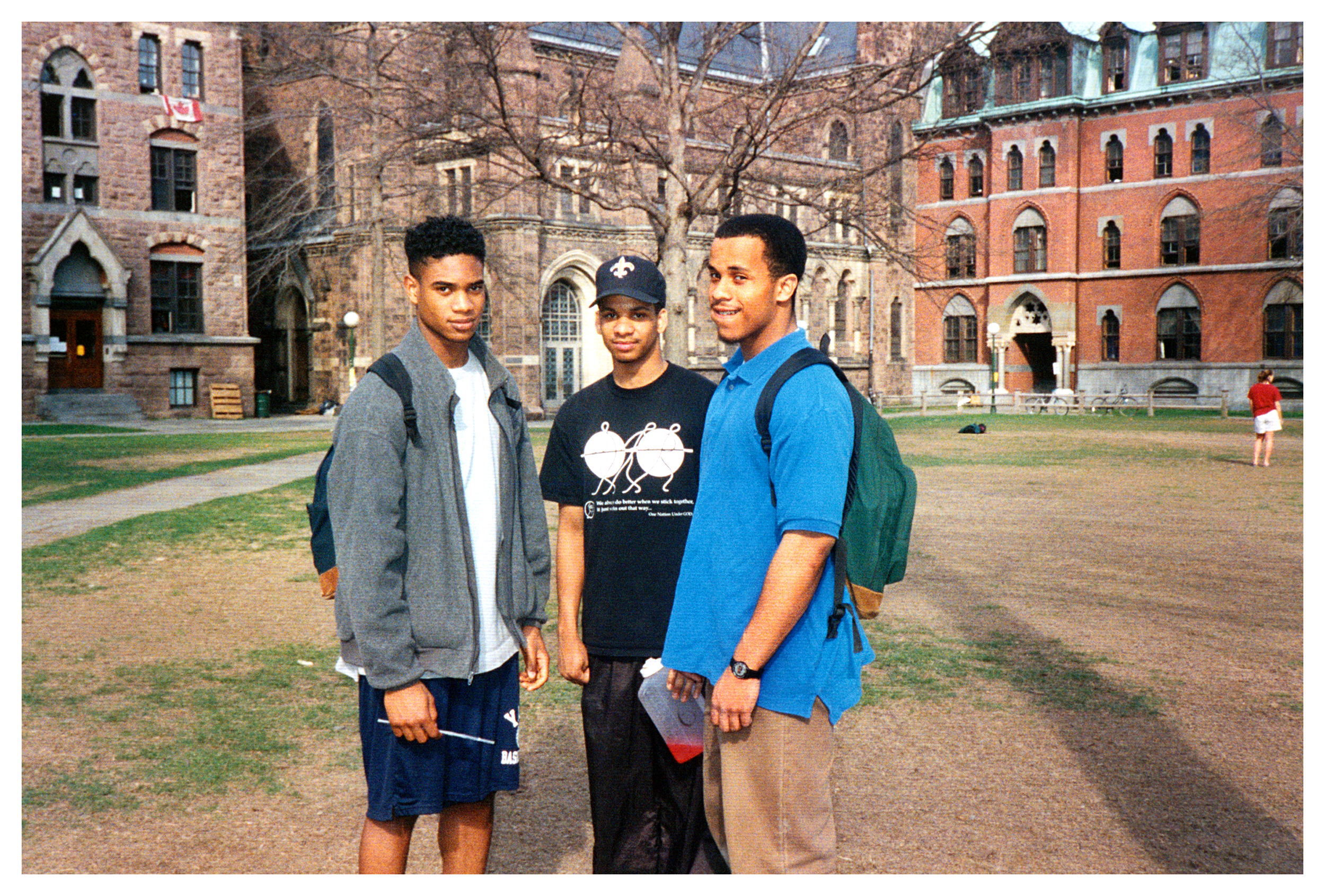One year after the Supreme Court ended affirmative action, Tribeca Film Festival’s 2024 Spotlight Documentary “Black Table” features members from the largest Black class at Yale University discussing the importance of community and culture.
During the mid-1990s in the United States, this country was undergoing a racial reckoning akin to 2020 after George Floyd was murdered at the hands of police. This period is now called the Great American Divide—the time following the severe beating of Rodney King by the Los Angeles Police Department in 2001 and the subsequent race riots. Amidst this backdrop, Black students arrived on Yale’s campus, and “Black Table” chronicles how these students navigated the Ivy League institution at this time, finding their own safe haven: the Black Table, “an attempt to carve out a space of their own.”
Almost thirty years later, at a time when Diversity, Equity, and Inclusion (DEI) is being constantly challenged and attacked by the GOP, the cast and crew of “Black Table” wanted to ensure their stories were told, giving viewers a seat at the Black Table in the dining hall that bonded them together.
The documentary premieres on June 8 and as Class of 1994 alumna Imani Perry, who mentored many students in the class of 1997 told ESSENCE, “The fact that the class of 1997 was the largest indicates that the turn away from a robust commitment to affirmative action began long ago. And the loss to elite universities when the Black student body decreases is immense.”
“Those brilliant, multi ethnic, intellectually diverse resilient and deeply gifted students will go elsewhere and the ‘best and brightest’ slogan just won’t be applicable any longer,” continued Perry. “I never felt fortunate to be at Yale, I felt Yale was fortunate to have me. And as the tide turns against affirmative action and diversity we have to remember, the institutions where our young people are fortunate and that is where we ought to invest our energy time and resources.” Since graduating from Yale, Perry spent 14 years as a faculty member at Princeton University, and is now a professor at Harvard University.

Executive Producer Alisa Payne spoke to the legacy and resilience of Black community, stating “Since the Transatlantic Slave Trade, Black people have had to create community for themselves to thrive in – against great odds. [Directors John James] “JJ”, Bill [Mack] and the team have done a phenomenal job of illustrating the need for Black students to create safe space for themselves in predominantly white institutions.”
“This film highlights the ways in which Black students blossom and thrive when feeling supported and valued. Ultimately, we see how society benefits greatly from their contributions. At a time when Diversity and Inclusion initiatives are being outlawed we need films like “Black Table” more than ever,” Payne added.
“As the interviews began, we realized that we were kind of peeling back layers of an onion, and it wasn’t really about the Black table. It was about being Black in America in this moment of time when the Civil Rights Movement had kind of lost steam,” shared James, who is a member of the class of 1997. “We wanted to capture that sense of opportunity, but then immediately, there’s this kind of rollback. We were taking another look at race and America through this refracted lens. That was the table.”
For Mack, “it was a cathartic experience,” and nostalgic in a way. “I like to say the film’s evergreen because we’re dealing with some of the issues that were occurring back then that still occur now. Although the film is not about affirmative action, it is a component because it was a factor back then, and even though it has now ended, it’s still relevant. Black tables are still forming.”
“It’s the 25th reunion year for the class of 1997, and the film delves into where are they now. But, I think the Black table concept will continue to exist and I hope that this film will inform others, maybe at their workplace or at school,” said the 1995 graduate.
“I want viewers to have more appreciation for what the Black student experience in higher education is like, the racial gauntlet and the amount of decisions you have to make,” Mack said. “I think if that leads to a little bit more empathy, then this film will have served a purpose.”







